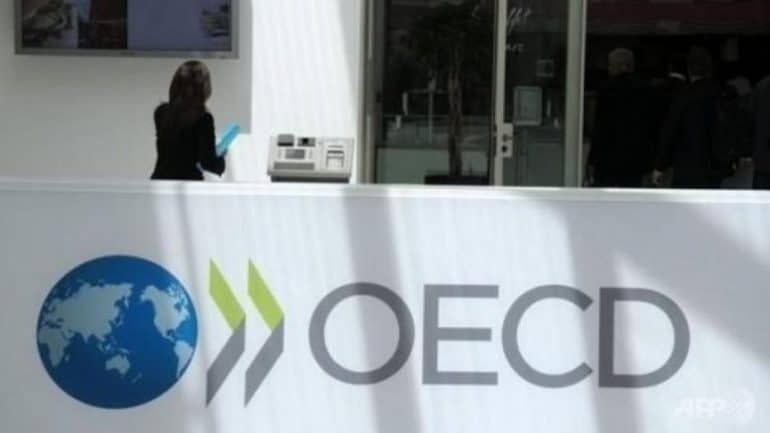The Organization for Economic Co-operation and Development (OECD) upgraded its estimates for the outlook for the global economy for 2023 on Tuesday, however, downgrading its forecast for growth in 2024, as interest rate increases that have aimed at containing inflation.
The global economy is now expected to grow by 3,0% this year, up from the 2,7% forecast by the OECD last June.
However, the OECD says global growth is expected to remain "below circumstances", slowing to 2,7% next year - from 2,9% previously forecast.
"After a stronger-than-expected start to 2023, helped by lower energy prices and China's (post-pandemic) market reopening, global growth is expected to moderate," the OECD notes.
"The impact of tighter monetary policy is becoming increasingly visible, business and consumer confidence have declined and the recovery in China has weakened," he underlines.
Central banks around the world have sharply raised borrowing costs in an effort to tame consumer prices that soared in the wake of Russia's invasion of Ukraine last year, Agence France-Presse reports.
"Inflation is expected to moderate gradually in 2023 and 2024, but will remain above the targets of Central Banks in most economies," the OECD emphasizes.
The European Central Bank (ECB) raised its key interest rate to a record level last week, but hinted that this could be its last hike, while the US Federal Reserve (Fed) is expected to halt its own rate hike of interest rates next Wednesday.
Consumer price increases have eased in the US and the Eurozone, but remain well above the 2% targets of both the Fed and the ECB, while oil prices have rebounded in recent weeks.
The (Central) Bank of England as well as the Central Banks in Norway, Sweden and Switzerland also make interest rate decisions next Thursday.
"Even if policy rates do not rise further, the effects of past increases will continue to work through economies for some time," the OECD underlines.
Borrowing costs for businesses and households have risen, while credit conditions have tightened, he adds.
"Some countries are already seeing an increase in loan and credit card delinquency rates and an increase in corporate bankruptcies," the OECD warns.
The crisis in US regional banks last March and the sale of European banking giant Credit Suisse show that "risks remain" that higher interest rates will "put pressure on the financial system", the OECD also warns.
China danger
In addition, the OECD warns that "a sharper-than-expected slowdown in China is an additional key risk that would hit output growth around the world."
The world's second largest economy is facing growth difficulties this year after three years of restrictions due to the pandemic Covid-19 and the huge debt in the real estate sector.
The OECD downgraded China's growth outlook to 5,1% this year and will slow to 4,6% in 2024, down 0,5 percentage points from the Organization's previous forecast.
While it raised its estimates for the world's largest economy, the US, it says US growth will slow from 2,2% in 2023 to 1,3% next year.
Although the US economy "has so far proved surprisingly resilient to the sharp rise in interest rates", the effects of tighter financial conditions "are expected to become increasingly visible", the OECD adds.
The agency cut its forecasts for the Eurozone, expecting growth of 0,6% this year and 1,1% in 2024, as the German economy faces several difficulties.
Japan's growth outlook rose 0,5 percentage points to 1,8% for 2023, but fell 0,1 points to 1,0% for 2024.
Source: KYPE
